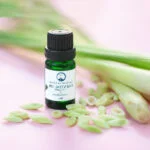As an expectant mother, you may be wondering which aromatherapy oils are safe in pregnancy. Aromatherapy is a popular holistic approach to wellness, utilizing essential oils to promote physical and emotional well-being.
However, when it comes to using essential oils during pregnancy, there are certain safety concerns that need to be addressed. In this article, we will explore the benefits of aromatherapy for pregnant women, understand the safety considerations of using essential oils during pregnancy, and identify which essential oils are safe for use during this special time.
Pregnancy is a time of joy and excitement, but it also comes with various changes and challenges. Many expectant mothers turn to aromatherapy as a natural way to alleviate common pregnancy-related discomforts such as nausea, fatigue, stress, and swollen ankles. However, it’s important to be aware that not all essential oils are safe for use during pregnancy and some should be avoided altogether.
While some essential oils can provide relief and support overall wellness during pregnancy, others can pose potential risks to both the mother and the baby. Understanding which essential oils are safe for use in pregnancy is crucial for expectant mothers who want to incorporate aromatherapy into their self-care routine. In the following sections, we will delve into the safety concerns of aromatherapy oils during pregnancy and identify the essential oils that are safe for use during this special time.
Understanding the Safety Concerns of Aromatherapy Oils During Pregnancy
Pregnancy is a time when many women turn to holistic and natural remedies to support their health and well-being. Aromatherapy, which involves the use of essential oils derived from plants for their therapeutic properties, is one such remedy that has gained popularity among pregnant women. However, it is essential to understand the safety concerns associated with using aromatherapy oils during this crucial time.
One of the primary safety concerns with aromatherapy oils during pregnancy is the potential for certain essential oils to be harmful to the developing fetus. Some essential oils have been found to have uterine stimulant effects, which could potentially lead to contractions and miscarriage in some cases.
In addition, some oils can also cross the placenta and affect the baby’s development. It’s important for pregnant women to be cautious about the types of essential oils they use during this time.
To ensure the safe use of aromatherapy oils during pregnancy, it is crucial for expectant mothers to be well-informed about which essential oils are considered safe and which ones should be avoided. Working with a qualified aromatherapist or healthcare provider who has experience in using aromatherapy during pregnancy can provide valuable guidance on selecting safe essential oils and using them appropriately.
| Essential Oils to Avoid During Pregnancy | Safe Essential Oils for Pregnancy |
|---|---|
| Clary Sage | Lavender |
| Rosemary | Chamomile |
| Juniper Berry | Ylang Ylang |
Essential Oils to Avoid During Pregnancy
Understanding the Risks
Pregnancy is a delicate time, and it’s important for expectant mothers to be cautious about what they expose themselves to. Essential oils are highly concentrated plant extracts that can have powerful effects on the body, which is why certain oils should be avoided during pregnancy. Some essential oils can cause uterine contractions or negatively impact hormone levels, potentially leading to complications such as miscarriage or preterm labor.
Oils to Steer Clear Of
There are several essential oils that should be avoided during pregnancy due to their potential harm to both mother and baby. These include but are not limited to:
- Rosemary
- Peppermint
- Clary sage
- Juniper
- Cinnamon
These oils can stimulate the uterus, disrupt hormones, or have other adverse effects that may pose a risk during pregnancy. It’s important for pregnant women to carefully review the use of any essential oil and consult with a healthcare provider before doing so.
Alternatives for Caution
For women who wish to enjoy aromatherapy during pregnancy, there are alternative options that are considered safe. This includes oils like lavender, chamomile, ylang ylang, and citrus oils such as sweet orange or lemon. These oils are generally regarded as safe and can offer relaxation and other benefits without posing significant risks to an expectant mother or her baby.
Safe Essential Oils for Pregnancy
During pregnancy, it is important for expectant mothers to be cautious about the use of essential oils due to their concentrated nature. However, there are some essential oils that are considered safe to use during pregnancy, as they can provide numerous benefits and alleviate common discomforts associated with this unique stage in a woman’s life.
1. Lavender: Known for its calming and soothing properties, lavender oil can help pregnant women relax and reduce stress and anxiety.
2. Chamomile: This gentle essential oil is often used to promote relaxation, relieve insomnia, and soothe mild skin irritations.
3. Ylang Ylang: With its sweet floral scent, ylang-ylang oil can help uplift the mood and reduce feelings of tension or nervousness.
4. Bergamot: This citrusy essential oil is known for its uplifting and refreshing qualities, making it a great option for combating fatigue and mood swings.
5. Lemon: Lemon oil has energizing properties that can help combat nausea and morning sickness, making it a popular choice among pregnant women.
When choosing essential oils for pregnancy, it is crucial to ensure that they are of high quality and purity. Look for reputable brands that offer therapeutic-grade oils to maximize the benefits while minimizing potential risks. Additionally, always consult with a qualified aromatherapist or healthcare provider before using any essential oils during pregnancy to ensure safety and suitability for individual needs.
Benefits of Aromatherapy for Pregnant Women
Aromatherapy has been gaining popularity as a safe and effective way to promote relaxation and overall well-being, especially among pregnant women. The use of essential oils during pregnancy can provide numerous benefits for both the physical and emotional health of expectant mothers. Here are some key benefits of aromatherapy for pregnant women:
- Relief from nausea and morning sickness: Certain essential oils such as ginger, peppermint, and lemon can help alleviate the symptoms of nausea and morning sickness that are common during the early stages of pregnancy.
- Stress reduction: Aromatherapy oils like lavender, chamomile, and ylang-ylang are known for their calming properties, which can help pregnant women manage stress and anxiety.
- Pain relief: Some essential oils such as clary sage and frankincense may offer natural pain relief for common discomforts associated with pregnancy, such as backaches and muscle tension.
In addition to these specific benefits, the use of aromatherapy oils during pregnancy can also contribute to an improved overall sense of well-being for expectant mothers. It is important to note that the safety of essential oils during pregnancy depends on their proper use and dosage. Pregnant women should always consult with a qualified healthcare provider before using any new aromatherapy products.
Ultimately, incorporating aromatherapy into a prenatal self-care routine can be a valuable tool in promoting a healthy and comfortable pregnancy experience. With the right essential oils and proper guidance, pregnant women can enjoy the numerous benefits that aromatherapy has to offer.
How to Properly Use Aromatherapy Oils During Pregnancy
Pregnancy can be a time of mixed emotions, and many women turn to aromatherapy oils for relaxation and stress relief. However, it is essential to use these oils properly to ensure the safety of both the mother and baby. Here are some guidelines for using aromatherapy oils during pregnancy:
1. Consult with a healthcare professional: Before using any aromatherapy oils during pregnancy, it is crucial to consult with a healthcare professional, such as an obstetrician or midwife. They can provide personalized advice based on your specific health needs and medical history.
2. Dilute the oils: Essential oils are highly concentrated and should always be diluted before use, especially during pregnancy. A safe dilution ratio for pregnant women is 1% – this means adding 6 drops of essential oil to 1 ounce (30ml) of a carrier oil, such as coconut oil or almond oil.
3. Use caution with certain oils: Some essential oils are known to stimulate uterine contractions, which can be harmful during pregnancy. Oils such as rosemary, basil, clary sage, and juniper should be avoided in the first trimester and used sparingly in the second and third trimesters.
Properly using aromatherapy oils during pregnancy can offer many benefits for expectant mothers when done safely and effectively. By following these guidelines, pregnant women can enjoy the relaxing and therapeutic effects of aromatherapy while minimizing any potential risks to themselves and their babies.
| Essential Oil | Safety Concerns |
|---|---|
| Lavender | Safe for use after the first trimester |
| Citrus Oils (Orange, Lemon) | Safe for use throughout pregnancy |
| Ginger | Safe for alleviating nausea in small doses |
Recommended Aromatherapy Recipes for Pregnancy-Related Concerns
During pregnancy, many women experience a range of physical and emotional concerns that can be effectively addressed with aromatherapy. Essential oils are a natural and safe way to alleviate common pregnancy-related issues such as nausea, fatigue, stress, and muscle pain. However, it is important to use essential oils cautiously during pregnancy and adhere to recommended guidelines for safety.
Nausea Relief
One of the most common discomforts experienced during the first trimester of pregnancy is nausea. Aromatherapy can provide relief through the use of certain essential oils. Peppermint oil is known for its ability to alleviate nausea and can be inhaled or diluted in a carrier oil for topical application. Inhaling ginger essential oil can also help reduce feelings of queasiness.
Stress Reduction
Pregnancy can bring about increased levels of stress for many women. To promote relaxation and reduce stress, consider using lavender essential oil. Known for its calming properties, lavender oil can be diffused in the bedroom or added to a warm bath. Alternatively, a blend of bergamot and frankincense oils can help alleviate anxiety and promote emotional balance.
Relief From Muscle Pain
As the body undergoes physical changes during pregnancy, some women may experience muscle pain, especially in the lower back and hips. A massage blend using chamomile and eucalyptus essential oils diluted in a carrier oil can provide relief from muscle discomfort. The anti-inflammatory properties of these oils make them effective for soothing sore muscles without any harmful side effects for expecting mothers.
By following recommended recipes using safe essential oils, pregnant women can address their specific concerns while enjoying the natural benefits of aromatherapy without compromising their health or the health of their baby.
Tips for Choosing High-Quality Aromatherapy Oils for Pregnancy
When choosing aromatherapy oils for pregnancy, it is essential to prioritize safety and quality. Pregnant women should opt for high-quality, pure essential oils that are free from additives or synthetic ingredients. To ensure the oils are safe for use during pregnancy, look for labels that specify the oil is “100% pure” or “therapeutic grade.” Additionally, it is recommended to purchase oils from reputable sources such as certified aromatherapists, holistic healthcare providers, or trusted wellness brands.
Another tip for selecting high-quality aromatherapy oils for pregnancy is to choose organic options whenever possible. Organic essential oils are derived from plants that have been grown without the use of pesticides or synthetic fertilizers.
By choosing organic oils, pregnant women can minimize their exposure to potentially harmful chemicals and ensure a higher level of purity in the products they use. Additionally, organic essential oils are often produced using environmentally friendly and sustainable practices, making them a more eco-conscious choice.
Lastly, consider seeking guidance from a qualified aromatherapist or healthcare provider experienced in working with pregnant women. Aromatherapy practitioners can provide valuable insight into which essential oils are safe and beneficial for pregnancy, as well as offer personalized recommendations based on individual needs and concerns. Consulting with an expert can help expectant mothers navigate the world of aromatherapy and make informed choices when selecting high-quality oils for use during pregnancy.
Conclusion
In conclusion, aromatherapy can be a safe and effective option for pregnant women when used with caution and knowledge. While there are essential oils that should be avoided during pregnancy due to potential risks, there are also many safe options that can provide numerous benefits, such as relieving nausea, reducing stress and anxiety, and easing discomfort associated with pregnancy.
It is important for pregnant women to consult with their healthcare provider before using any essential oils, especially if they have any underlying health conditions or concerns. Proper usage of aromatherapy oils during pregnancy involves diluting them properly and using them in moderation. It is also crucial to choose high-quality, pure essential oils from reputable sources to ensure safety and effectiveness.
Overall, when used responsibly and under the guidance of a healthcare professional, aromatherapy can be a valuable tool to support the physical and emotional well-being of pregnant women. By understanding which essential oils to avoid and how to properly use safe ones, pregnant women can experience the potential therapeutic benefits of aromatherapy throughout their pregnancy journey.
Frequently Asked Questions
What Body Oils Can I Use During Pregnancy?
During pregnancy, it is important to be cautious about the body oils you use. It is generally recommended to avoid using essential oils directly on the skin during pregnancy, especially in the first trimester. Instead, consider using natural, unscented carrier oils like coconut oil, almond oil, or jojoba oil to keep your skin moisturized and hydrated during this time.
What Diffuser Blends Are Safe During Pregnancy?
When it comes to diffuser blends during pregnancy, it’s important to be mindful of the essential oils you are using. Some safe options for diffuser blends during pregnancy include citrus oils like orange or lemon, lavender, peppermint (in small amounts), and ginger. Always dilute essential oils properly and make sure the scent is not overpowering.
What Carrier Oils Are Safe During Pregnancy?
Safe carrier oils during pregnancy include coconut oil, almond oil, olive oil, and jojoba oil. These carrier oils are gentle on the skin and can be used for massage or as a base for essential oil blends.
It’s important to choose high-quality carrier oils that are free from additives and 100% natural to ensure safety for both you and your baby.

Are you looking for a natural way to improve your health and wellbeing?
If so, aromatherapy may be the answer for you.





